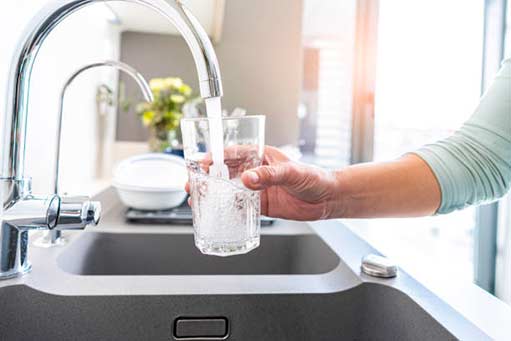The Importance of Water Quality
Water is an essential resource that we rely on for various purposes such as drinking, cooking, bathing, and cleaning. Ensuring the quality of our tap water is of utmost importance to protect our health and well-being. In the city of Chicago, water quality plays a crucial role in providing safe and clean drinking water to its residents. This article aims to shed light on the role of water quality in Chicago and provide insights on understanding and improving your tap water.
Understanding Water Quality
Water quality refers to the chemical, physical, and biological characteristics of the water supply. These characteristics are measured against certain standards and guidelines set by regulatory bodies to ensure that the water is safe for consumption. Factors that affect water quality include the source of water, treatment processes, storage, and distribution systems.
In Chicago, tap water is primarily sourced from Lake Michigan, one of the largest freshwater lakes in the world. The water undergoes a series of treatment processes to remove impurities and pathogens before it reaches our taps. However, despite these measures, there are still potential issues that can affect the quality of tap water.
Common Water Quality Concerns in Chicago
While the city of Chicago strives to provide clean and safe drinking water, there are certain factors that can impact the water quality. Understanding these concerns can help residents make informed decisions regarding their tap water.
1. Lead Contamination
One of the major concerns regarding water quality in Chicago is lead contamination. Lead can leach into the water supply from old lead pipes or plumbing fixtures, especially in older buildings. Exposure to high levels of lead can be detrimental to human health, especially for children and pregnant women.
2. Chlorine and Disinfection Byproducts
To ensure the safety of drinking water, chlorine is commonly used as a disinfectant in water treatment plants. While chlorine effectively kills harmful microorganisms, it can react with organic matter in the water and form disinfection byproducts (DBPs). Some DBPs, such as trihalomethanes (THMs), can pose health risks if consumed in large quantities over a long period of time.
3. Pesticides and Chemical Contaminants
Pesticides and other chemical contaminants can find their way into the water supply through agricultural runoff or industrial activities. These contaminants can be harmful to human health and can be challenging to remove through conventional treatment processes.
Improving Water Quality in Chicago
The city of Chicago is committed to continually improving the quality of tap water and addressing the aforementioned concerns. It is also essential for residents to take proactive steps to ensure the quality of their tap water.
1. Lead Testing
To determine whether your tap water contains lead, you can request a lead test from the Chicago Department of Water Management. If elevated lead levels are detected, you may need to take corrective actions such as installing filters or replacing you lead water lines.
2. Filtered Water Pitchers and Faucet Filters
Using filtered water pitchers or faucet filters can further improve the quality of your tap water by removing impurities and chlorine. Make sure to choose filters certified by recognized organizations like NSF International.
3. Bottled Water
Another option is to rely on bottled water for drinking and cooking purposes. However, it is important to consider the environmental impact of plastic waste generated by single-use bottles.
4. Regular Maintenance of Plumbing
Regularly inspecting and maintaining your plumbing system can help prevent lead contamination and other water quality issues. Replace any old or deteriorating pipes and fixtures to minimize the risk of contamination.
In Summary
Understanding and improving the tap water quality in Chicago is essential for safeguarding our health and well-being. By being aware of common water quality concerns and taking proactive measures, we can ensure that our tap water is safe for consumption. The city of Chicago is continuously working towards enhancing water quality, but it is also our responsibility as residents to be mindful of any potential risks and take appropriate actions to protect ourselves and our families.

